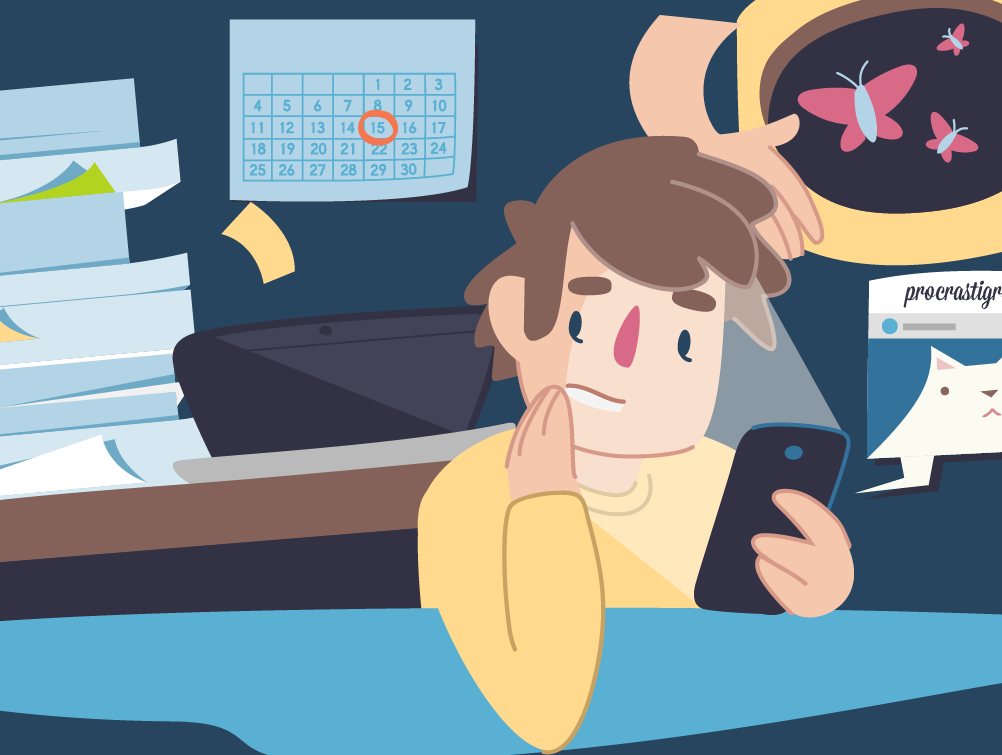Make a plan of what you want to work on in each study session. Break it down into small tasks and work on one task at a time.
Exam Stress
Exams coming up? Sometimes the pressure you feel can help keep you focused, other times it can cause stress. Check out these tips to help you cope with stress during exam time.
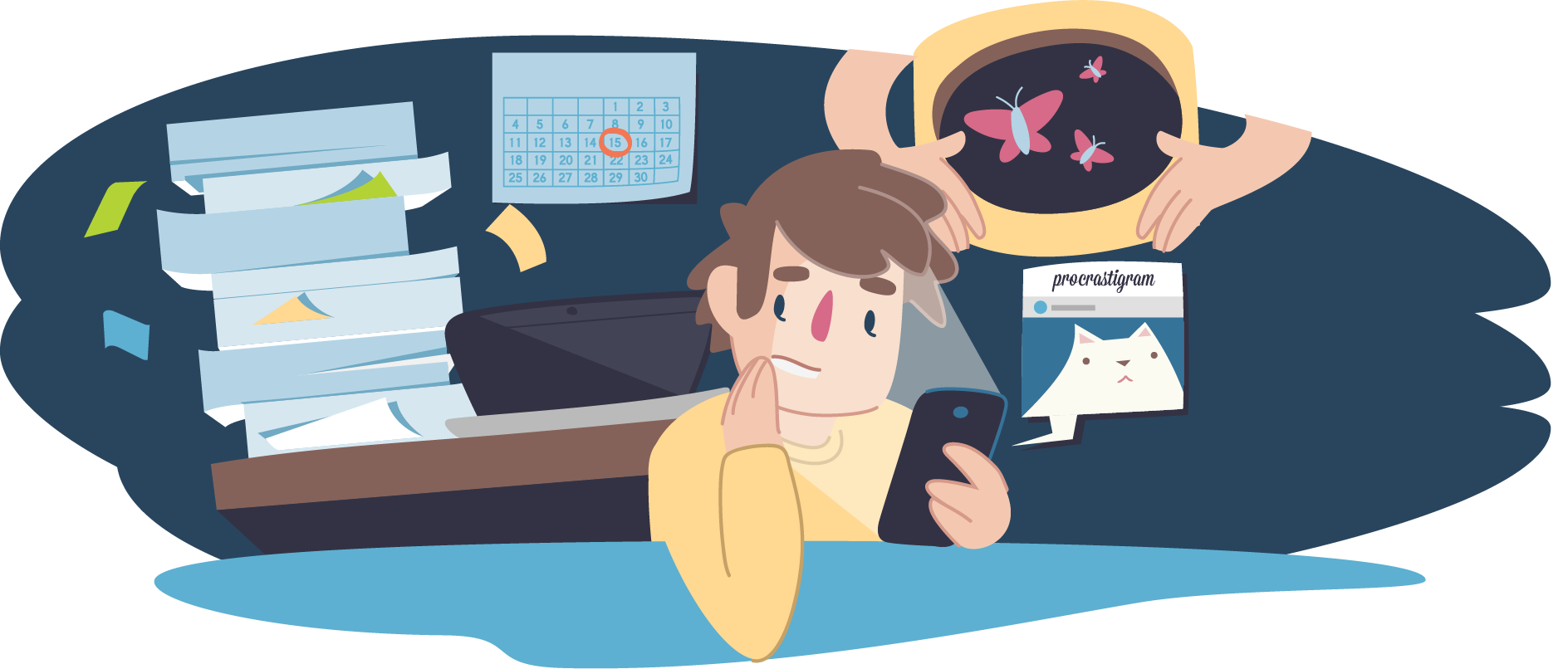
What does exam stress look like?
People might experience physical symptoms, like trouble sleeping, feeling sick in the stomach, headaches and muscle tension, and fidgeting, nail-biting and teeth grinding.
Exam stress can also be mental or emotional, like feeling confused, being irritable, feeling overwhelmed, lacking motivation and withdrawing from family, friends and things you normally enjoy.
Why do people experience exam stress?
Worry they might fail
Don't feel prepared
Want to do really well
Don’t have much time to study
Need to get a certain result
Don’t think they will do well
Find it hard to understand what they’re studying
Feel pressure from family to get good marks
Feel they need to compete with others
Have other things happening in their life
What’s your study style?
Did you know that your different ‘thinking style’ can affect how you learn and best study?
When we asked our Insta followers, “What’s your thinking style?”
- 57% of you think in words (I.e. have an ‘inner voice’ or ‘talk to yourself’ in your thoughts)
- 43% of you think in sensations (e.g. images in your ‘mind’s eye’, or other sensations like smells, feelings, etc)
How can I figure out my thinking style?
- Close your eyes and imagine your favourite food
- Remember what you did yesterday
- Imagine your favourite song
If you talk to yourself as you think of your fave food, and what you did yesterday, and think of the lyrics of your fave song, you’re most likely a word thinker.
If you see your fave food and memories, and hear the beat of your fave song, you’re most likely a sensation thinker.
(Yep, you can definitely be both!)
If you think mostly in words...
You might find strategies involving communication to be helpful. For example, read your study notes out loud to yourself.
When having a break from studying, do something that gives you a break from your inner voice, e.g. do a visualisation (meditate while picturing a beautiful beach, for example).
If you think mostly in sensations...
This will depend on the type of sensations you think in. If you are a visual thinker (see images in your mind’s eye), your study superpower is to make your notes visual – you might use colours, pictures, diagrams, tables, etc. to help you remember how the information ‘looked’.
People who think in sensations can sometimes find it trickier to communicate what they’re thinking – it can be great practice to put your thoughts into words – especially if you’re struggling with something or need some study help.
Neurodivergence, disabilities and studying
- Know your strengths and superpowers – and work with them. For example, if hyperfocus is your superpower, and you love YouTube videos, you might study by watching as many YouTube videos on your topic as you can.
- Choose your best place/environment for studying, assignments and taking tests. For example, if you have sensory issues and find noises disturbing, find a quiet place to study. If you’re easily distracted, study somewhere with less distractions.
- Choose your best time for studying. Try to study at your best focus time. If you like routines, it can help to incorporate studying into your routine.
- Problem-solve any challenges or needs you have. For instance, if you have trouble focusing/reading words on a page, some people find colour overlays can help. If you’re having specific study issues, do some research on what others have found helpful.
Unfortunately, our society isn’t always as inclusive as it should be. But remember that you have a right to be treated fairly. And fairness isn’t about treating everyone the same. It’s about supporting people with their individual differences and needs.
If you have any specific needs for studying, assignments, or exams, chat them through with a support person and your school.
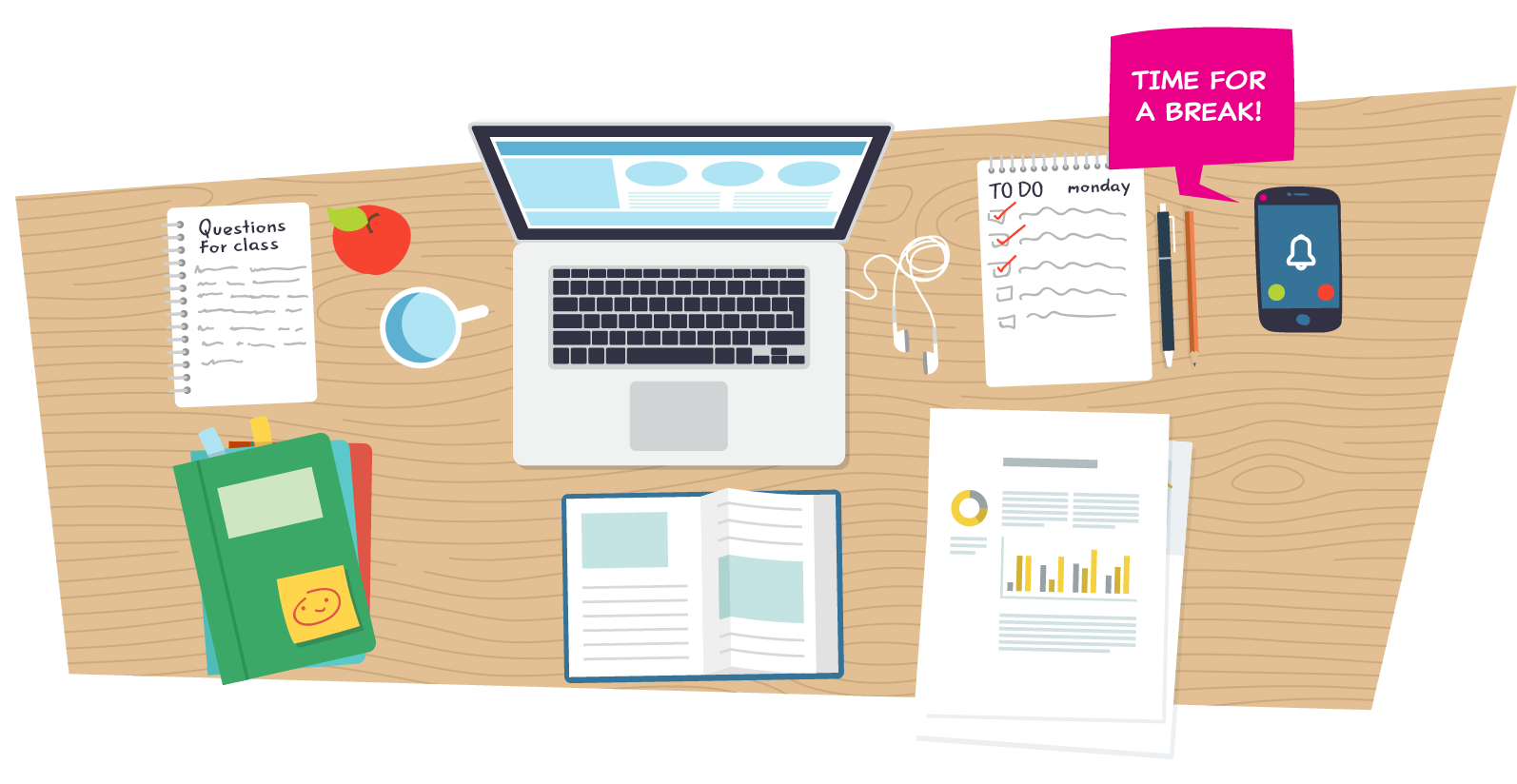
Tips to help while studying
Try these tips and tricks:
Get a good night’s sleep. Sleep is the time we consolidate working memory into short term memory, and short-term memory into long term memory. Don’t skip sleep to study!
Make it competitive, or give yourself mini rewards once you achieve your study goals.
Keep study sessions short - you remember the most info in the first 15 mins and last 15 mins of studying. Big, long study sessions might make you feel like you’re working hard – but studying in short bursts makes it easier to start, and helps you remember more.
Work with a friend, and ‘explain’ the things you need to remember to each other. Explaining it to someone else can help you make sense of and remember complex info.
Look after yourself – make sure you eat nutrient rich foods, do exercise, spend time with family and friends and do things you enjoy in order to de-stress.
Keep stuff in perspective. Exams carry a lot of pressure and it’s easy to ‘catastrophise’ about exam results. If you don’t do as well as you hope, there are so many different ways to achieve your future study and work goals.
Ask for help from a teacher if you need to.
Give procrastination the boot!
Did you know that we all have a personal procrastination style? Procrastination happens when you delay or postpone what you ‘should’ be doing – and it’s usually a stress avoidance response.
Knowing what your procrastination style is can give you strategies to tame it, so you can get back to studying asap. Take our procrastination quiz here.
Next level study hacks
One of the biggest mistakes people make when they study is that they simply reread or highlight information.
This kind of studying is passive, which makes it hard to remember. So we’ve gathered together our counsellors’' top study hacks to help you take your studying to the next level – and study smart instead of hard.
Study hack #1: Get creative
Some subjects are easy to get creative with. Finding ways to make it fun can help you remember a whole lot more key info. For example, make your English novel a comic strip starring your fav fictional characters. Or, remember your history by pretending you were there and write it as a diary entry.
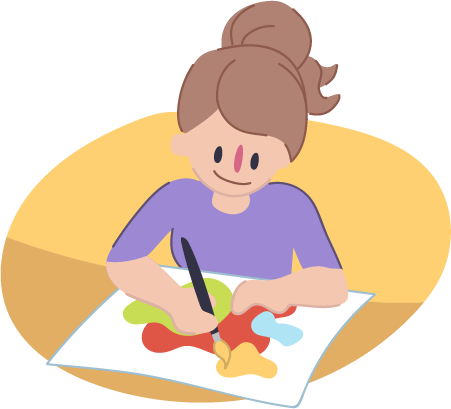
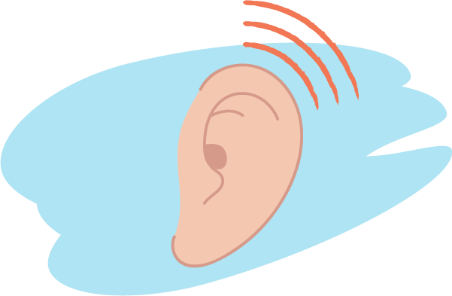
Study hack #2: Work with your senses
This is all about working with your strengths. If you’re a visual learner, turn your science study into funny artworks. Or, make up silly songs to your fav tunes to help you remember grammar or other languages.
Did you know? Our brain has been designed to seek out and store info about food. For most of human history, famine was a big threat – so food and memory are very closely linked (which is one reason why smells can bring up memories from years ago). Snacking and chewing while you study can help you remember info more easily!
Study hack #3: Use a science-back strategy
This strategy is seriously legit. Known as ‘method of loci’, or ‘memory palace’ it works by connecting pieces of info with a location you’re very familiar with, like your home. It requires a little bit of imagination and creative thinking. Let’s do an example to make this easier to understand!
Imagine you need to memorise some key words for an Italian language test. Picture the front door of your house. Imagine there’s a boat tethered there. (The Italian word for door is ‘porta’ - like a boat port). You walk into the house. In the front entrance is an ape, being attacked by a bee. (The Italian word for bee is ‘ape’). Etc.
By using a technique like this, you can more easily recall important info.

Sometimes people keep anxiety a secret because it's hard to talk about, they don't want to be a 'burden' or seem weak. But when it comes to anxiety, 'name to tame' it. Talking about it and having support helps a lot.
Ideas for exam day
Here are some tips to help exam day go smoothly:
- Work out what you need to take with you on exam day and organise this the night before.
- Go to the toilet before the exam starts.
- If you feel yourself getting worried before your exam - spend some time focusing on your breathing.
- When you sit down to do your exam, take time to slow your breathing and relax.
- Read through the exam paper carefully. Underline key words and instructions.
- Work out how long you have for each question or section.
- Aim to have time to re-read answers through and to make any changes.
- Work on the questions that you find easiest first. You don’t have to go in order.

Remember passing an exam is only part of the story. There’s always a second chance or another way to reach your goals
If you’re feeling stressed about exams, you’re not alone.
Talking to someone and finding ways to cope during exam time can help.
If you need help coping with exam stress, give us a call, start a WebChat or check out My Circle today.
If you are looking for more digital services and resources, check out Head to Health.
If you would like individual online support to help you reach your work and study goals headspace Work and Study Online can help.
Check these out too:
Why can’t I focus at school?
Stress can make it difficult to concentrate, learn and feel motivated. Here ...
READ MEWhy do I freak out when I’m stressed?
To work out why you're feeling anxious, it can be really helpful ...
READ MEManaging people’s expectations of you
One of the hardest aspects of creating a work-life balance is managing ...
READ MEPutting pressure on yourself
We sometimes put a lot of pressure on ourselves to be perfect. ...
READ ME
Talking helps! We’re here for you.
No problem is too big or too small.
We're here 24 hours a day, 7 days a week

